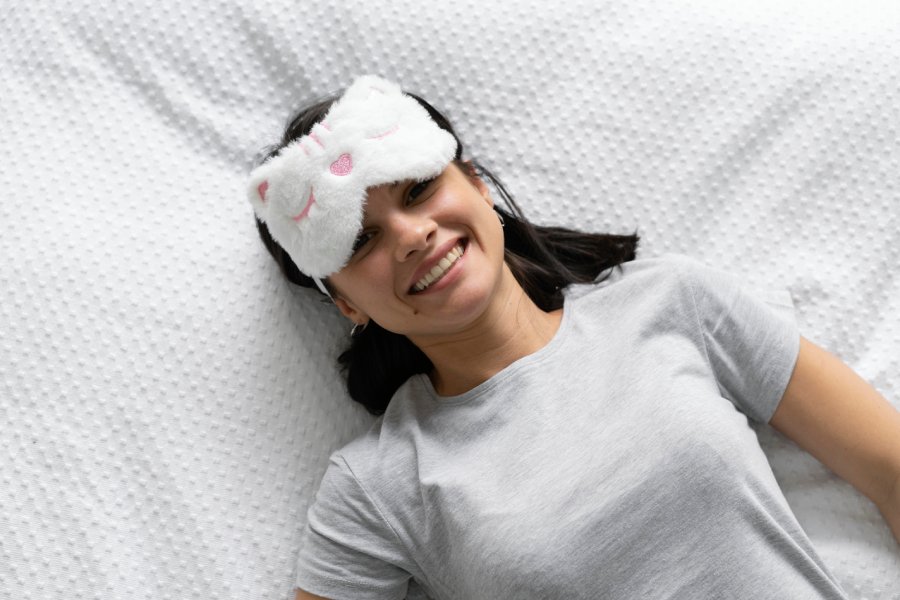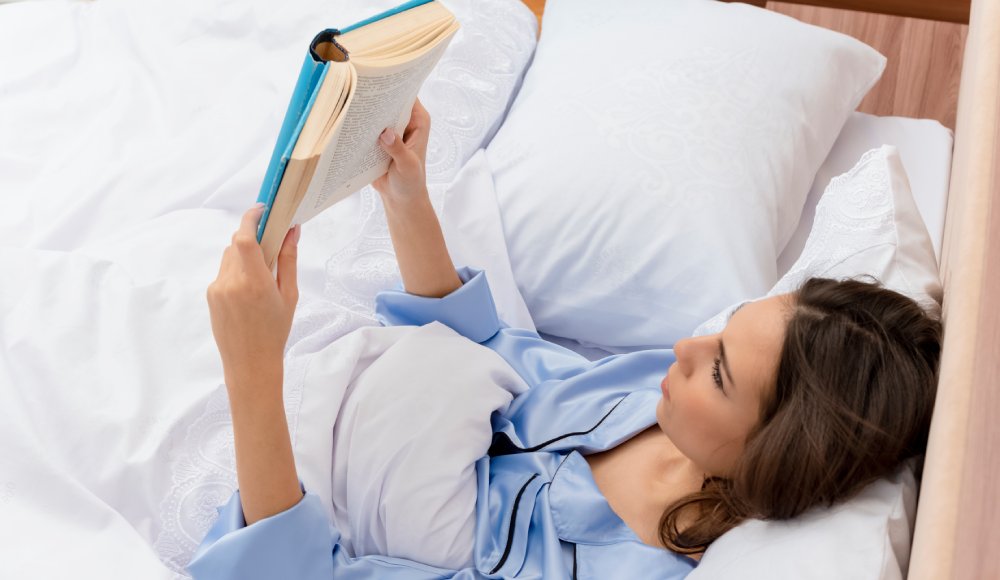We all love a good night’s sleep, where you slip into bed, feel the soft comfort of your blankets, and slip into a peaceful slumber. There is quite nothing like waking up after hours of peaceful rest, feeling cozy, refreshed, and ready to begin your day.
But sometimes, no matter how tired we are, we just can’t fall asleep. Instead, we lie awake, staring at the ceiling, struggling to calm down our never-ending thoughts. Those restless nights can leave us feeling groggy and irritable, affecting our mood, focus, and energy the next day. We’ve all experienced those sleepless nights, staring at the clock, feeling more frustrated with every passing minute.
A good night’s sleep is essential for the health and well-being of people of all ages, from children to adults. Good sleep supports proper cognitive functioning, mood, as well as your physical health, while insufficient sleep increases the risk of accidents and various health issues like heart disease, diabetes, and obesity. To promote optimal health, adults are advised to get at least 7 hours of sleep each night, with specific recommendations varying for children and older adults. Unfortunately, many people don’t meet these sleep guidelines, which highlights the need for improved sleep habits (Ramar et al., 2021).
In this blog, we will explore how the key to achieving sound sleep often lies in making straightforward changes to our habits and surroundings. This practice, known as sleep hygiene, can significantly enhance the quality of your sleep naturally. By creating better routines, you can enjoy more peaceful nights, more energized mornings, and more productive days.
What is sleep hygiene?
Sleep hygiene refers to the healthy habits and environmental factors that contribute to a good night’s sleep. Research has identified guidelines and strategies that can enhance sleep quality, offering long-term solutions to common sleep issues. Although medications may provide temporary relief for sleep difficulties, they can lead to dependence and prevent the development of effective sleep habits. By prioritizing good sleep hygiene, such as making simple lifestyle changes and cultivating a positive sleep environment, you can significantly improve your overall sleep quality (Centre for Clinical Interventions, n.d.).

Sleep Hygiene Tips
Here are some sleep hygiene techniques that can help you get a good night’s rest
- Create & Keep a Consistent Sleep Schedule: Go to bed and wake up at the same time every day, even on weekends, to help regulate your body’s internal clock.
- Establish a Relaxing Wind-Down Bedtime Routine: Reduce the intensity of activities before bed. Engage in calming practices such as gentle yoga, reading, or taking a warm bath to prepare your body for sleep.
- Avoid Electronics Before Bed: Switch off electronic devices at least 30 minutes before bedtime, as the blue light they emit can interfere with your ability to fall asleep.
- Sleep When Sleepy: Only try to sleep when you feel genuinely tired, rather than spending too much time awake in bed.
- Get Up and Relax: If you can’t sleep after 20 minutes after being in bed, get up and do something calming until you feel sleepy. Avoid activities that are too exciting or stimulating, as they can keep you awake.
- Limit Caffeine & Nicotine Intake: Avoid these stimulants for at least 4-6 hours before bed.
- Avoid Alcohol: Steer clear of alcohol 4-6 hours before sleep, as it disrupts sleep quality.
- Bed for Sleep Only: Only use your bed for sleeping to create a strong association. If you use your bed for activities like watching TV or working, your body may not associate it solely with sleep.
- Avoid Daytime Naps: If you must nap, keep it under an hour and do it before 3 PM.
- Be Mindful of What You Consume Before Bed: Pay attention to how different foods and drinks affect your sleep. Avoid heavy meals or anything that can cause discomfort before bedtime.
- Watch Alcohol Consumption: Contrary to popular belief, alcohol can negatively impact sleep quality, so consume it mindfully.
- Regular Exercise: Engage in regular physical activity, but avoid strenuous workouts within 4 hours of bedtime.
- Create Sleep Rituals: Establish calming pre-sleep activities, such as breathing exercises or quiet reading, to signal your body that it’s time to wind down.
- Take a Warm Bath: Enjoy a hot bath 1-2 hours before bedtime to help initiate sleepiness.
- Optimize Your Space: Ensure your bedroom is quiet, dark, and at a comfortable temperature. Use blackout curtains or an eye mask to block out light, and consider earplugs to reduce noise.
- Maintain Daytime Routine: Keep your daily activities consistent, even if you’re tired from a bad night’s sleep.
- Avoid Clock-Watching: Refrain from checking the clock frequently while in bed to prevent anxiety about sleep.
- Use a Sleep Diary: Track your sleep patterns for two weeks to gain insights without obsessing.
- Put on Some Comfy Pajamas! Changing into comfortable sleepwear signals to your brain that it’s time for bed. (Gillis &Abulhosn, 2024; Centre for Clinical Interventions, n.d.).
If you follow these tips for better sleep, you’ll establish a consistent sleep schedule and only go to bed when you’re genuinely tired, which can help your body develop a healthy rhythm.
By adhering to these sleep hygiene guidelines, you’ll be able to create a calming bedtime routine and optimize your sleep environment. This will not only enhance your ability to fall asleep but also improve the overall quality of your rest. As you incorporate these practices into your nightly routine, your body will respond positively, leading to more restful nights and refreshed mornings, and as a result, better days ahead!
References
Gillis, K., Abulhosn, R. (2024, June 7). Sleep hygiene: 12 tips to improve your sleep. https://www.choosingtherapy.com/sleep-hygiene/
Centre for Clinical Interventions. (n.d.). What is Sleep Hygiene? https://www.cci.health.wa.gov.au/~/media/CCI/Mental-Health-Professionals/Sleep/Sleep—Information-Sheets/Sleep-Information-Sheet—04—Sleep-Hygiene.pdf
Ramar, K., Malhotra, R. K., Carden, K. A., Martin, J. L., Abbasi-Feinberg, F., Aurora, R. N., Kapur, V. K., Olson, E. J., Rosen, C. L., Rowley, J. A., Shelgikar, A. V., & Trotti, L. M. (2021). Sleep is essential to health: an American Academy of Sleep Medicine position statement. Journal of Clinical Sleep Medicine, 17(10), 2115–2119. https://doi.org/10.5664/jcsm.9476

